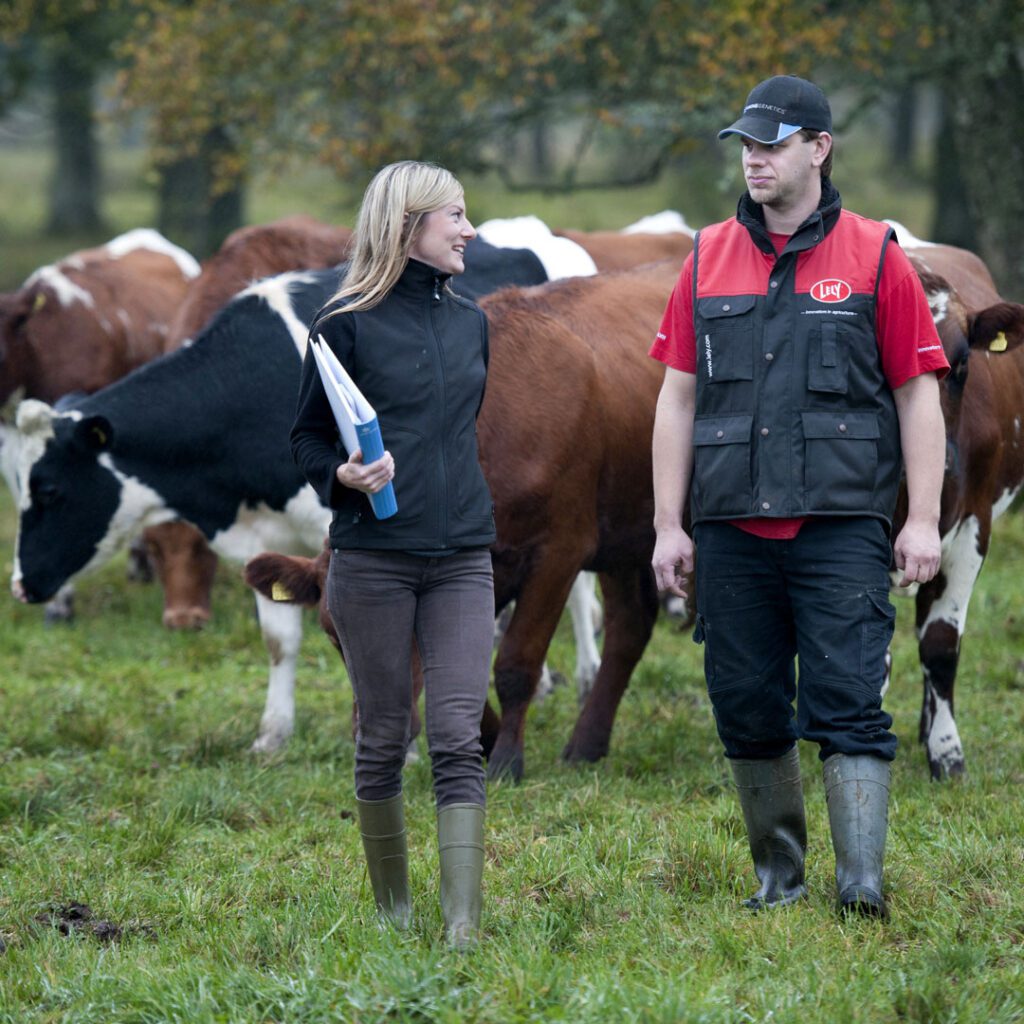Share this page
Focus on nutrient loss on dairy farms - Greppa Näringen
Focus on Nutrients (Greppa Näringen) is the largest single undertaking in Sweden to reduce losses of nutrients to air and water from livestock and crop production based on knowledge transfer and voluntary participation by the farmer.

Alignment with SDGs
AUTHOR
Victoria Thuillier Federation of Swedish farmers – Dairy section • Sweden
Abstract
In 2001, The Swedish Board of Agriculture, The County Administration Boards, The Federation of Swedish Farmers and a number of companies in the farming sector started the project aimed at reducing nutrient loss on farms. The stakeholders, the Swedish farmers, saw a trend of nutrient management regulation in neighbouring countries and they were keen to avoid the administrative burden and threat of penalties and wanted to avoid mandatory reporting. They therefore adopted a voluntary knowledge transfer approach.
There were several reasons for increased pressure on the agricultural sector. The eutrophication of the Baltic sea was generally derived to nutrient loss from agriculture at the time. There was also increased focus on environmental measures in EU´s Common agricultural policy and new national environmental targets had recently been taken.
The promise
Economically, environmentally, and socially sustainable food production in Sweden and its surrounding waters.
The purpose is:
- reduce emissions of greenhouse gases
- reduce losses of nitrate from farmland
- reduce ammonia emissions from manure
- reduce losses of phosphorus from farmland
- avoid losses of pesticides into surface and groundwater
- increase energy efficiency on farms
Moving the wheel
The project is a joint venture between the Swedish Board of Agriculture, County Administrative Boards and the Federation of Swedish farmers. Other key players are advisory firms in Sweden. The broad collaboration has offered a solid base and acceptance for the project by decision makers and farmers.
To make the project lasting and successful all four areas below had to be put in place:
- Design and implementation of a knowledge transfer program.
- Public relations strategy and marketing of the project to attract farmers and advisors to the initiative.
- Training of advisors.
- Secure long-term investment to further develop the program and increase the number of participants.
While nutrient management was the core of the project from day one, today almost 20 years later the project has evolved to a broader environmental and climatic sustainability focus.
Nine out of ten farmers have implemented small and large environmental measures at their farms following a visit from an adviser. Most of them believe that these measures have also benefited farm profitability. Good for the environment and good for business!
Victoria Thuillier Tweet
History of success
Focus on Nutrients has been successful in achieving its initial goals and is still going almost 20 years later. More than 35 000 farm visits have been carried out since the beginning of the project. The on-farm visits are performed by more than 200 advisors that are employed by 45 different advisory firms across Sweden.
The farm visits that focused on dairy feeding ranked among the best in achieving actual change on farm in the member survey from 2017-2019. Most farmers were generally positive to the meeting with the advisor. In the same survey, 87% of the farmers answered they received concrete and relevant tips on changes they can make in their enterprise. In 2017-2019, 32% of the participants in the project Focus on Nutrients were dairy producers.
A valuable initiative
Focus on Nutrients is based on positive drivers such as voluntary cooperation, knowledge, and resource management. This provides gains to the environment, entrepreneurs, and society. In our view, this is environmental work at its very best! It has been beneficial to farmers, advisors, and consumers.
New opportunities
Broadening the concept beyond sustainable nutrient use on farms has already been done to include more sustainability aspects such as climate, biodiversity, energy use, to name a few. There is also a potential to broaden the target group to smallholders, hobby farms and livestock generally not kept for agricultural purposes such as horses. Sweden has more horses than dairy cows for example. While resource efficiency and drivers of sustainable production generally is well known within the dairy sector in Sweden, this may not be the case within the equine sector.
Other potentials are improved data collection and data analysis depending less on farmer and adviser effort, which supports good and constructive discussions and strategies.






